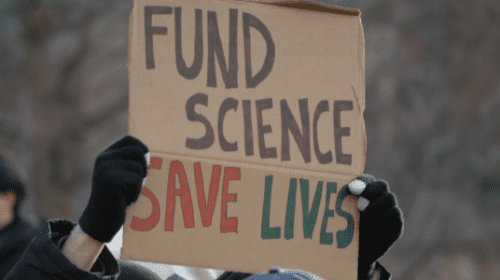Stigma
In the mental health and addiction spaces, stigma is the labeling, stereotyping, and discrimination against those who experience mental health and substance abuse challenges.
Detox
Detoxification is the process of clearing substances from your system. This process is often met with physical and psychological withdrawal symptoms. It is best to detox under the supervision of a medical professional.
IOP
Intensive outpatient treatment allows people to get the care they need for their substance challenges while maintaining their everyday lives, staying engaged with their family and community, and staying present in their jobs and relationships.
VIOP
Virtual intensive outpatient treatment provides all the same expert clinical and support resources as our regular IOP treatment but with the convenience and flexibility of a remote model.
California Sober
“Cali sober” refers to a lifestyle in which a person abstains from alcohol and other drugs but still uses marijuana. People have varying opinions on whether or not Cali sober is considered sobriety or not.
Transgender-Affirming Care
Transgender-affirming care is healthcare tailored to the needs of transgender and nonbinary individuals, including medical, surgical, mental health, and non-medical services. It gives them the same respect, compassion, and quality care that every patient deserves.
Co-occurring Disorders
Also known as dual diagnosis or comorbidity, co-occurring disorders are when a person struggles with a mental illness and a substance use disorder together. Co-occurring disorders require specialized treatment so both challenges are addressed.
Virtual Mental Health Treatment
Virtual mental health treatment is private and convenient mental health support for people in the comfort of their own homes. The care people receive during virtual mental health treatment is similar to that of in-person mental health treatment.
Residential Treatment
Residential treatment is a live-in treatment program for those struggling with substances or other mental health challenges. Residential treatment generally ranges from seven to twenty-four days, based on a person’s needs.
Inpatient Treatment
Inpatient treatment occurs in a monitored environment with accommodations like therapy and group programming. Most inpatient programs have a scheduled routine, are highly organized, and provide 24/7 medical care.
PHP
Partial hospitalization programs provide comprehensive medical and behavioral care for substance use disorder in a hybrid outpatient and medical setting. These programs balance depth of care, flexibility, and independence. Depending on clinical issues and lifestyle, it offers the exact treatment and support people need.
MAT
Medication-assisted treatment utilizes FDA-approved medications to aid in the treatment process, specifically opioid addiction and, in some cases, alcohol use disorder.
Wet Brain
Also known as Wernicke-Korsakoff Syndrome, wet brain is an underdiagnosed progressive neurological disorder that is caused by thiamine deficiency, usually due to alcohol-use disorder.
Halfway House
Halfway houses are transitional homes for people during their mental health, drug, or alcohol recovery. These homes can help people reintegrate into their community and learn to utilize peer support from other house members. Each house has rules and expectations that residents must follow to stay there. Halfway houses are also known as sober living or recovery residences.
The Pink Cloud
The pink cloud concept in addiction refers to an optimistic period of sobriety when everything is going well. Symptoms may include high energy and optimism, joy, and feelings of euphoria. The pink cloud can occur at various points in recovery, and not everyone will experience it.
Music-Assisted Treatment
Clinical mental health and substance treatment programming uses music to heal. Music-assisted treatment might include personalized playlists while in treatment, live performances, writing songs, or recording and producing music.
Music is clinically proven to aid in the management and alleviation of a wide range of physical and mental health issues, including but not limited to depression, anxiety, chronic pain, schizophrenia, and trauma.
Methadone Clinic
Methadone clinics are medical and behavioral health facilities providing medication-assisted treatment for those suffering from opioid use disorder. Patients receive low doses of methadone to relieve withdrawal symptoms, reduce cravings, and help taper off more harmful substances safely and sustainably.
Intervention
An intervention is a gathering of concerned loved ones in hopes of getting a person struggling with drugs or alcohol into treatment. The intervention’s purpose is to illustrate how much their drinking or drug use has affected each person and to show the person the impact their behavior has on the people they love.
Fentanyl Testing kit
Fentanyl testing kits are used to detect fentanyl levels in street drugs like heroin, cocaine, and methamphetamine. You can find fentanyl test strips online and in-store at most retail pharmacies, and they can vary in price. Single strips can range from around $1.00 to $5.00, and multi-use kits can range between $30-$50.
Family Intensive Therapy
These programs are tailored to address the unique needs of each family and typically involve immersive, concentrated therapy sessions that focus on improving communication, strengthening relationships, and promoting understanding and empathy among loved ones.
Dry January
Dry January is a global movement started in 2013 by Alcohol Change UK to encourage alcohol-free living for a month and beyond. It’s a public health campaign urging people to abstain from alcohol.
Withdrawal
Withdrawal describes the physical and psychological symptoms felt after stopping or reducing substance use. Symptoms can include fatigue, vomiting, nausea, depression, anxiety, seizures, and hallucinations.
Harm Reduction
Harm reduction is a public health movement aiming to minimize substance use’s legal, medical, and community impact. It incorporates a range of policies and initiatives designed to facilitate safe-as-possible substance use while simultaneously encouraging prevention and treatment when people are ready.
Drug Court
Drug courts are localized programs governed by county officials designed to help rehabilitate eligible defendants facing legal charges for drug-related infractions.
Enabling
The term “enabling” describes appeasing someone to make them or yourself feel better, even if it’s dangerous or hazardous to their health. Many people, even those with the best intentions, enable their loved one’s substance use without knowing it, making it easier for them to use.
CBT
Cognitive behavioral therapy is the most common and effective form of talk therapy. During CBT, your therapist helps you address problems and guides you as you work through them to reduce your symptoms. They will also help you prepare to handle future challenges.
DBT
Dialectical behavior therapy is a form of CBT. DBT techniques address negative thought patterns and dysfunctional beliefs that can lead to substance use. DBT focuses on treating specific mental health issues and is a standard evidence-based treatment for depression.
SUD
The acronym SUD stands for substance use disorder. An SUD is a mental disorder affecting the person’s brain and behavior, leading to their inability to control their substance use.
TMS therapy
The acronym TMS stands for transcranial magnetic stimulation. TMS therapy is a non-invasive brain stimulation therapy used to help alleviate symptoms of depression.
Pet-Friendly Rehab
Some addiction treatment facilities encourage people to bring their pets while in rehab. Animals bring comfort and support, boosting treatment success and overall well-being.
EAP
Employee assistance programs in the workplace offer comprehensive, evidence-based mental health and addiction treatment to those who need it.

























